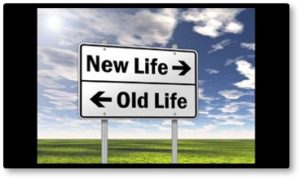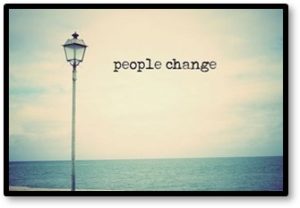Monday Author: Susanne Skinner
“Life is partly what we make it and partly what it is made by the friends we choose.”
~ Tennessee Williams
Friendships weave themselves into the fabric of our lives and those relationships influence and shape the people we become. We form friendships when we are drawn to likeminded people who share our interests and values. We seek out those that enhance our lives with new experiences, help us grow, open our minds and push us to become better human beings.
 Long-term friends are good for our emotional and physical health. A Brigham Young University report offers statistical research that shows people with strong friendships live 7.5 years longer than those with narrow social networks. Friendships improve our quality of life and we hurt deeply when they end.
Long-term friends are good for our emotional and physical health. A Brigham Young University report offers statistical research that shows people with strong friendships live 7.5 years longer than those with narrow social networks. Friendships improve our quality of life and we hurt deeply when they end.
It is a harsh reality to realize that you and a friend have drifted apart. Suddenly you have more differences than commonalities and the friendship you once shared begins to lose value and meaning.
We grow, we change, and sometimes we discover those closest to us did not grow, or changed in ways that made us more different than alike.
Life Changes
When circumstances in our lives change, our friendships can also be affected. We make choices that set us on new paths and sometimes deal with change that comes unbidden and unexpected. Both affect the ability of a friendship to survive.
None of us will stay the same as a result of these changes. We are comforted by friends who walk with us on our journey and remain with us as we face the future. We are saddened when they are unable or unwilling to do so.
A Finnish study in 2016 found men and women make a large number of friends until the about the age of 25, when the number begins to decline. It continues to fall as we age until there is a small circle of close relationships that weather major life changes with us: marriage, children, relocation, financial highs and lows, illnesses and death.
When you’re celebrating important life changes and accomplishments you want your friends with you, sharing your joy. When you are going through a difficult passage, experiencing loss or hardship, you need friends that will wrap you in a circle of love and safety until you are whole again.
If your friends are unable to support you in either of these situations, it is likely the friendship is no longer meaningful and will come to an end. The emotional ties that bound you together will loosen and eventually break. It feels personal and it hurts.
Mismatched Expectations
As people grow and change they can also grow apart. Close friendships require shared interests, an investment in other people, empathy, loyalty and commitment.
 Staying friends means letting go of idealistic expectations and unrealistic demands. A healthy friendship provides space to love and accept one another as we are and nurtures the desire to stay connected as we navigate the changes that come.
Staying friends means letting go of idealistic expectations and unrealistic demands. A healthy friendship provides space to love and accept one another as we are and nurtures the desire to stay connected as we navigate the changes that come.
We enter into friendships with the hope that they will remain intact throughout our lives, and we are blessed when they do. But that expectation does not mean we are inflexible; relationships are not rigid, they are fluid. Healthy friendships learn how to bend.
We should have differences, but when those differences outweigh the benefits of being friends, it unbalances the friendship and it becomes unhealthy, unpleasant and impossible to sustain.
Negativity, harsh judgements and criticism erode the foundation the friendship is built on. As I have aged, I have become less tolerant of people like this, choosing friends who offer uplifting, positive and encouraging relationships. I love what we share and appreciate the ways we are different.
The lifelong friendships that bless my life have been strong enough to carry me during the times I could not stand. Friends like that embrace your changes because living a full life comes with change.
People Change
We expect our friends to support us during big life changes, but sometimes it just doesn’t happen that way. Humans are emotionally wired to seek people who will support us in our current life and remain with us as we age. But what happens when we don’t have the support we counted on?
 The things that drew us into a friendship may no longer exist and the closeness we once shared slips away. We mourn the demise of what we had and face the reality that the effort to hold it together has become a burden. Losing a friendship is hard. It leaves a void in your life and we look for the fault within ourselves. But just as often it is about the other person.
The things that drew us into a friendship may no longer exist and the closeness we once shared slips away. We mourn the demise of what we had and face the reality that the effort to hold it together has become a burden. Losing a friendship is hard. It leaves a void in your life and we look for the fault within ourselves. But just as often it is about the other person.
When the context of the friendship changes, it is because the people themselves have changed. Similarities become differences and getting together begins to feel like an obligation rather than a joy. A friend becomes an acquaintance.
Strong friendships add value to your life. They encourage you to expand your thinking, and challenge you to see new perspectives. A true friend will affirm you and lovingly let you know when you have veered off course. These relationships are the ones worth continuing. They say, “I am here for you.”
The2016 election brought an end to many lifelong friendships because of an inability to respectfully disagree over political differences. I often wonder if those people actually changed, or simply revealed themselves for who they really are.
Friendships End
When a friendship ends you will still care about the other person even though it is unlikely that you will see or speak to them on a regular basis. There is a grieving process and the acceptance that a person who was once your friend is no longer a part of your life.
It is a hard thing to go through, and it will happen more than once to all of us. People you know will become people you knew.
